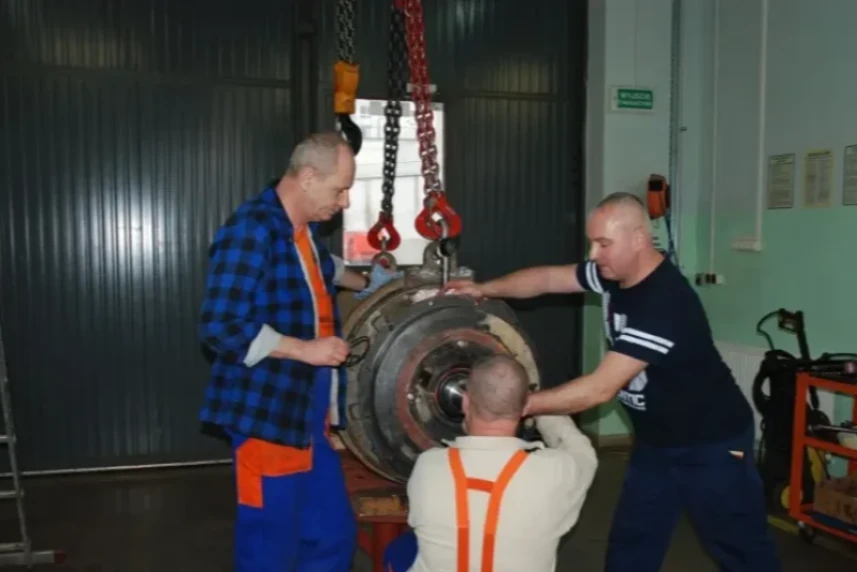Warning from the Municipal Water and Sewage Company: Pouring oil in the toilet or sink can cause a failure
Marta Kufel

The toilet is not a rubbish bin, and the normal operation of the sewage network depends not only on the Municipal Water and Sewage Company (ZWiK) but also on its users.
Flushing random things in the toilet can cause failures and create jams which can cause flooding of premises, basements and garages.
“Pouring many litres of oil down the sewage drain can create a huge problem. This causes sediment to form, as a result of which the pipe diameter is reduced and the pipe jams. “The sink and the toilet should only be used for disposing of wastewater from our hygiene routines,” said Hanna Pieczyńska, the Press Spokesperson of ZWiK.
Let us remind you of items which MUST NOT BE FLUSHED IN THE TOILET:
- OIL!
- cotton wool, sanitary pads, hair, wet wipes, cotton swabs, nappies, tampons, parts of clothing, including tights, rugs, bandages – hygiene products are made of materials which do not dissolve in water; they swell and not not break up. As a result, they block toilet discharge pipes and drain stacks and seriously disrupt sewage treatment technological processes.
- water-insoluble materials, i.e. paper towels, newspapers, cigarette butts,
- needles – they are dangerous for sewer network workers,
- chemicals, i.e. acids and alkali, paint and varnish, impregnants, crop protection products and medications, as they can be harmful to microorganisms used to treat wastewater at the treatment plant,
- rubble, mortar and other building materials,
- (used) oil, including engine oil, which stick to pipe walls and gradually reduce their diameters, leading to jams,
- flammable and explosive substances, especially petrol, paraffin, heating oil, carbide,
- wastewater containing pathogenic microorganisms from hospitals, blood donation points and animal treatment establishments,
- food leftovers, peelings and bones – once they get to the sewage network, they attract rats, which transmit diseases and damage the infrastructure.
- plastic bags and toilet rim block packages – they can significantly reduce network capacity and efficiency.
- coffee and tea dregs, oils – they solidify in cold water and reduce pipe diameters. Together with other impurities, they accumulate in the sewer network pipes, forming impenetrable blocks.
If they do not block the drain, at some point they reach the lift station, where they can clog the appliances preventing them from pumping wastewater and causing a failure. As a result, buildings connected at the lowest points of the drainage basin can be flooded with wastewater. Despite the graphic symbols reminding users to throw the packaging to the dustbin, they often flush them down the toilet instead, leading to equipment failures. Sometimes it is enough to clear the pump impeller, but often a general repair of the appliance is required. Let’s use a more graphic example. Whirls forming behind the pumps make tissues roll into a braidlike shape. They are bound very strongly, and are very hard to cut, even with a knife.
“Items flushed down toilets include plastic bags, tampons, sanitary pads and cotton swabs. There is more to add to the list – people also throw rubble, cement, varnish and other chemicals to the sewer network,” Pieczyńska added. “The vast majority of the unwanted rubbish reaches the sewer system through our toilets and kitchen sins. Larger items are thrown directly to manholes by removing the cover.
Let's remember that flushing rubbish down the toilet can cause issues for residents, but also generate unnecessary costs for ZWiK – the lift station needs to be stopped and cleared, and removing the clogs is often required. What can a clog lead to? There can be a sewage backup, flooding apartments, basement, garden or street. This causes considerable financial losses, is cumbersome for residents and very harmful for the natural environment. As far as the treatment plant is concerned, chemicals are particularly dangerous for the biological cycle.
Why must we not throw random items to our sinks, washbasins and toilets? The answer is simple. Both the internal part of the sewer network in our homes and the external section becomes obstructed and clogged, which can cause a serious failure, difficult to remove and very expensive. The clog may cause a sewage backup that will flood the apartment, garden or street, resulting in considerable material losses and environmental pollution. Rubbish in the sewer system are a frequent cause of failures of lifting pumps transporting sewage to the treatment plant. Pump impellers are blocked by cotton swabs, wet wipes and torn plastic bags.
“To sum up, the sewer network is not a rubbish bin. There are no waste shredders there. Not everything that can physically go through the drainage pipe can be thrown there. It is intended only for wastewater from our everyday hygiene routines, dishwashing, laundering, cleaning, and the like,” Pieczyńska stated.